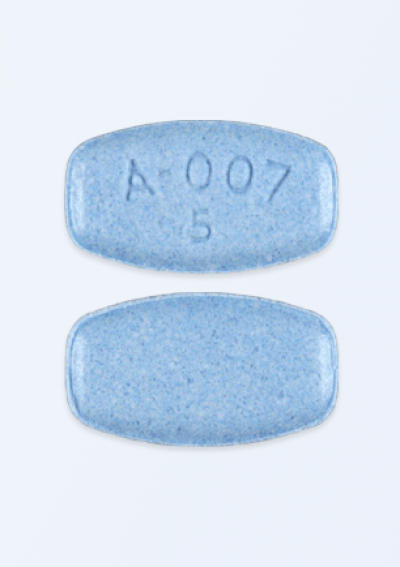Abilify
Abilify (aripiprazole) was once hailed as a revolutionary alternative to other antipsychotic medications. Since its approval in 2002, millions of Americans have taken the drug for conditions that range from schizophrenia to bipolar disorder to depression. But the powerful medication can cause serious side effects, including involuntary movement disorders and impulse control problems.

What Is Abilify?
Abilify is used to treat a wide variety of mental disorders, including schizophrenia, bipolar disorder and clinical depression. Doctors also prescribe the drug to treat autism-related irritability and Tourette syndrome in children and adolescents.
The U.S. Food and Drug Administration first approved the antipsychotic medication in 2002. In its early days, it was hailed as a breakthrough drug, and sales of the medication quickly skyrocketed. It didn’t have the same sedating effects as other antipsychotic drugs, and some people even found the drug was energizing.
But enthusiasm for the drug dampened as reports of troubling side effects emerged.
Some patients taking the drug have experienced movement disorders and distressing feelings of restlessness. Others have developed impulse control problems, such as binge eating and compulsive gambling.
In February 2019, Bristol Myers Squibb Company and Otsuka America Pharmaceutical Inc., the companies that make and sell the drug, agreed to settle thousands of Abilify lawsuits that blame the medication for causing users’ compulsive behaviors.
How Abilify Works
Abilify belongs to a class of drugs known as atypical antipsychotics, or second-generation antipsychotics. This newer generation of drugs is supposed to cause fewer dangerous side effects than older drugs used to treat psychosis.
It’s not entirely understood how the drug’s active ingredient, aripiprazole, works. The medication decreases the signal activity in parts of the brain with high dopamine levels and increases signaling in parts with low dopamine levels. It helps to stabilize the signaling that is not functioning properly in diseases such as schizophrenia, bipolar disorder, depression and Tourette syndrome.
Because of these actions, some medical literature refers to the drug as a “dopamine-serotonin stabilizer.” But like so many psychiatric medications, the effects of the drug are unpredictable and can vary considerably from person to person.
Side Effects
Like any medication, Abilify can cause a host of unwanted side effects. Some of the more common reactions to the drug include dizziness, lightheadedness, blurred vision, weight gain, constipation and drooling.
Some people who take the drug have difficulty sleeping. Certain patients, especially children, may develop an increased appetite, which can lead to weight gain. Like any antipsychotic, Abilify may increase the risk of falls, which can lead to broken bones and other injuries.
The drug can also cause more serious effects, including suicidal thoughts, compulsive behaviors and involuntary movement disorders, such as akathisia and tardive dyskinesia.
Akathisia causes feelings of restlessness and an urge to constantly move. Tardive dyskinesia causes uncontrollable jerky movements. Symptoms of tardive dyskinesia often include tongue rolling, lip smacking, eye blinking and other facial tics. Tardive dyskinesia may go away when a person stops taking the drug, but it is sometimes irreversible.
Serious aripiprazole side effects may include:
- Suicidal thoughts
- Compulsive behaviors
- Tardive dyskinesia
- Akathisia
- Neuroleptic malignant syndrome
- Elevated blood sugar levels
- Diabetes
- Elevated cholesterol levels
- Low blood pressure upon standing
- Low white blood cell counts
- Impaired thinking and motor skills
- Seizures
Although rare, Abilify can cause a life-threatening reaction called neuroleptic malignant syndrome, or NMS. Signs and symptoms of NMS include a high fever, rigid muscles, confusion, sweating and rapid changes in heart rate and blood pressure.
Any antipsychotic medication can cause NMS and most cases occur during the first 10 days of treatment. NMS is a medical emergency that requires prompt treatment and immediate discontinuation of the drug causing the reaction.
Black Box Warnings
Abilify carries two black box warnings, which are the most serious warnings attached to drugs and medical devices.
The drug’s label warns that the medication is not approved to treat elderly patients with dementia-related psychosis, and such patients who take the drug face an increased risk of death.
In clinical studies, elderly patients with dementia who took the medication had an increased risk of strokes and transient ischemic attacks, also known as TIA or ministrokes.
A black box warning also cautions that the drug may increase the risk of suicidal thoughts and behavior in children, adolescents and young adults.
Between 2011 and 2016, the FDA received reports of 14 deaths among children who had been taking Abilify. While five of those deaths were attributed to suicide, only one case provided sufficient information to show the drug directly caused the suicide, according to the FDA.
Any patient who takes a drug like Abilify to treat depression should be monitored for signs of worsening depression and suicide.

Impulse Control Problems
In 2016, the FDA issued a safety announcement about reports of serious, uncontrollable compulsive behavior with use of Abilify, including unusual urges to gamble, binge eat, shop and have sex. Both adults and children have developed these compulsive behaviors while taking the drug.
The watchdog agency said the impulse-control problems were rare but could lead to harm if they go unrecognized. The FDA required the drug’s maker to add new warnings about the uncontrollable and excessive urges to the medication label.
These impulse control problems have also been documented in medical literature. A case study in the International Journal of Neuropsychopharmacology described a 57-year-old man who started taking aripiprazole to treat bipolar disorder. Within a week of starting the drug, he developed an “unusual sexual desire.”
He stopped taking the drug, and the desire went away after one week. When he started aripiprazole once again a year later, the hypersexuality came back, but it again went away after he stopped the drug.
The same article described a 53-year-old woman with bipolar spectrum disorder who developed an increased urge to shop after she started taking aripiprazole. Her shopping compulsion persisted despite “drowsiness and loss of interest.” It disappeared two weeks after she stopped taking the drug.
The authors of the study theorized that the drug stimulates increases in the dopamine receptor activity in brain regions that are associated with impulse control and addiction.
What to Do If You Experience Side Effects
Talk to your doctor or pharmacist if you are taking Abilify and you are experiencing side effects. They may be able to give you tips about how to reduce the side effects, or they may recommend an alternative medication that you may be able to tolerate better.
Seek immediate medical attention if you’re experiencing the signs of neuroleptic malignant syndrome, suicidal thoughts or feelings, or another life-threatening side effect.
Report serious reactions to the FDA through the agency’s MedWatch program. File a voluntary report online or call the FDA at 1-800-FDA-1088. Your doctor can also make a report.
18 Cited Research Articles
Consumernotice.org adheres to the highest ethical standards for content production and references only credible sources of information, including government reports, interviews with experts, highly regarded nonprofit organizations, peer-reviewed journals, court records and academic organizations. You can learn more about our dedication to relevance, accuracy and transparency by reading our editorial policy.
- U.S. Judicial Panel on Multidistrict Litigation. (2019, March 15). MDL Statistics Report — Distribution of Pending MDL Dockets by District. Retrieved from https://www.jpml.uscourts.gov/sites/jpml/files/Pending_MDL_Dockets_By_District-March-15-2019.pdf
- Benzer, T. (2018, December 23). Neuroleptic Malignant Syndrome. Retrieved from https://emedicine.medscape.com/article/816018-overview
- National Alliance on Mental Illness. (2018, August). Aripiprazole (Abilify). Retrieved from https://www.nami.org/About-Mental-Illness/Treatments/Mental-Health-Medications/Types-of-Medication/Aripiprazole-(Abilify)
- Bellon, T. (2018, February 27). BMS reaches confidential settlement of all Abilify claims. Retrieved from https://www.reuters.com/article/products-abilify/bms-reaches-confidential-settlement-of-all-abilify-claims-idUSL1N20M2E4
- U.S. National Library of Medicine. (2017, July 15). Aripiprazole. Retrieved from https://medlineplus.gov/druginfo/meds/a603012.html
- U.S. Food and Drug Administration. (2017, May 16). Department of Health and Human Services Public Health Service Food and Drug Administration Center for Drug Evaluation and Research Office of Surveillance and Epidemiology: Pediatric Postmarketing Pharmacovigilanace and Drug Utilization Review. Retrieved from https://www.fda.gov/media/107289/download
- Lynch, S.N. (2016, December 8). Bristol-Myers Squibb to pay $19.5 million to settle off-label promotion case. Retrieved from https://www.accessdata.fda.gov/drugsatfda_docs/label/2017/021436s042,021713s033,021729s025,021866s027lbl.pdf
- Nestal, N.L. (2016, November 28). Patients Say Abilify Turned Them Into compulsive Gamblers and Sex Addicts. Retrieved from https://www.thedailybeast.com/patients-say-abilify-turned-them-into-compulsive-gamblers-and-sex-addicts
- Etminan, M. et al. (2016, October). Risk of Extrapyramidal Adverse Events With Apriprazole. Retrieved from https://www.ncbi.nlm.nih.gov/pubmed/27580493
- U.S. Food and Drug Administration. (2016, May 10). Atypical Antipsychotic Drugs Information. Retrieved from https://www.fda.gov/drugs/postmarket-drug-safety-information-patients-and-providers/atypical-antipsychotic-drugs-information
- U.S. Food and Drug Administration. (2016, May 3). FDA Drug Safety Communication: FDA warns about new impulse-control problems associated with mental health drug aripiprazole (Abilify, Abilify Maintena, Aristada). Retrieved from https://www.fda.gov/drugs/drug-safety-and-availability/fda-drug-safety-communication-fda-warns-about-new-impulse-control-problems-associated-mental-health
- Government of Canada. (2015, November 2). Summary Safety Review — Abilify and Abilify Maintena (aripiprazole) — Evaluating the Risk of Certain Impulse Control Behaviours. Retrieved from https://www.canada.ca/en/health-canada/services/drugs-health-products/medeffect-canada/safety-reviews/summary-safety-review-abilify-abilify-maintena-aripiprazole-evaluating-risk-certain-impulse-control-behaviours.html
- Hrodey, M. (2015, May 4). The Selling of Abilify. Retrieved from https://www.milwaukeemag.com/the-selling-of-abilify/
- U.S. Food and Drug Administration. (2014). Highlights of Prescribing Information. Retrieved from https://www.accessdata.fda.gov/drugsatfda_docs/label/2017/021436s042,021713s033,021729s025,021866s027lbl.pdf
- Kodama, M. & Hamamura, T. (2010, May 1). Aripiprazole-induced behavioural disturbance related to impulse control in a clinical setting. Retrieved from https://academic.oup.com/ijnp/article/13/4/549/713599
- Bandelow, B. (2003, January). Aripiprazole, a “Dopamine-Serotonin System Stabilizer” in the treatment of psychosis. Retrieved from https://www.researchgate.net/publication/228472921_Aripiprazole_a_Dopamine-Serotonin_System_Stabilizer_in_the_treatment_of_Psychosis
- MedicalsNewsToday. (n.d.). Abilify (aripiprazole). Retrieved from https://www.medicalnewstoday.com/articles/abilify
- Otsuka America Pharmaceutical. (n.d.). ABILIFY (aripiprazole). Retrieved from https://www.otsuka-us.com/media/static/Abilify-PI.pdf
Calling this number connects you with a Consumer Notice, LLC representative. We will direct you to one of our trusted legal partners for a free case review.
Consumer Notice, LLC's trusted legal partners support the organization's mission to keep people safe from dangerous drugs and medical devices. For more information, visit our partners page.
844-420-1914

